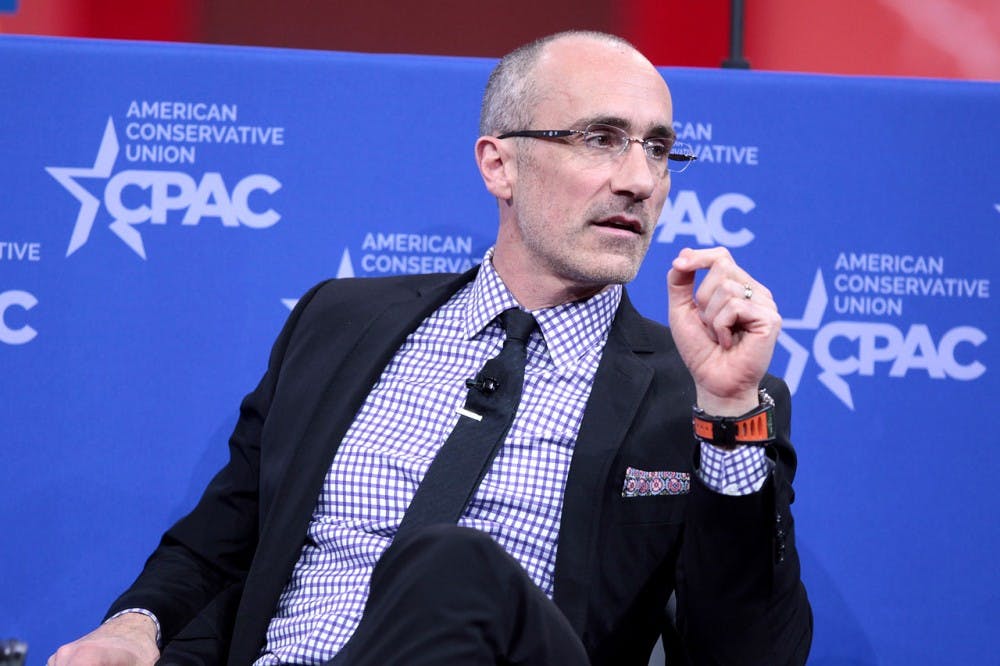Arthur C. Brooks, the 10-year president of the American Enterprise Institute, one of the world’s leading conservative think-tanks, is a frequent lecturer. On campus last spring, he talked about “The Art of Happiness.” Students, faculty, and members of the local community filled twice as many seats as expected. A recording can be found online, but sitting feet away from him was a truly empowering experience. Brooks exudes confidence in the state of America and is able to relate his personal stories to a vast population smoothly.
“I think it’s his voice and his posture that captures your attention and yields respect,” George Hurley ’22 mentioned when walking out of the lecture.
His lecture last spring focused on how human happiness changes over a lifetime and how steps can be taken to build a long-lasting sense of the emotion. He intertwined his life story, his purpose, and his calling. Music played a central role for much of his early life, but he detailed a specific moment of falling off the Carnegie Hall stage at the age of 22 as a metaphor for his falling French horn career. Pursuing his passion for music was a risk, as he had decided to push aside the pressure placed on him by his family to become a doctor. Realizing it was time to part from his past, he demonstrated the power of allowing change. He said, “To rage against change delays progress to new phases in life.” He encourages finding a desire for newness and change, as it improves health, happiness, well-being, and relationships. He ended by discussing the power of mastering oneself and the personal confidence it brings.
On campus this fall, he talked about “The Power of Stories to Inform: Going Beyond Data to Understand Critical Policy Issues.” He explained that, oftentimes, politicians think that producing statistics and stunning graphs of precise data is necessary in order to better understand and appreciate the top policy issues of today, but these charts do not linger in the minds of the audience like a story would. Brooks explained that, while it is important to know the facts and details, it is ultimately the human story that will result in united action. Narration skills should be taught alongside statistical analysis. Listening to others and sharing their perspective is the duty of leaders.
“It’s one of the paradoxes of persuasion: Smart people are afraid to tell stories,” Brooks told the audience.
Unafraid to tell stories himself, Brooks wrote his New York Times bestseller, “The Conservative Heart: How to Build a Fairer, Happier, and More Prosperous America,” to offer a new story, a new way of looking at conservatism in the pursuit of happiness, unity, justice, and opportunity for all through hard work and setting a high bar. After reading his book and attending his lectures, I think I am better able to understand his work in bringing people together to be the best they can be, and I truly admire his ability to connect stories from the past, sharing them with the utmost hope.
One lesson that I have always taken away from talking to Dr. Brooks is that we should be thankful to live in a world where many are eager to share their opinions and tell their own stories, even if the context is political and we believe in different policies or have different views. While he often steers clear of bringing a political conversation to lectures, unless appropriate, I was taken aback to hear of his more liberal family at home in Seattle, and the challenges he faced when trying to share his own beliefs. He reminds that above all, in our homes and at school, we must listen to each other; we all have our own perspective.








